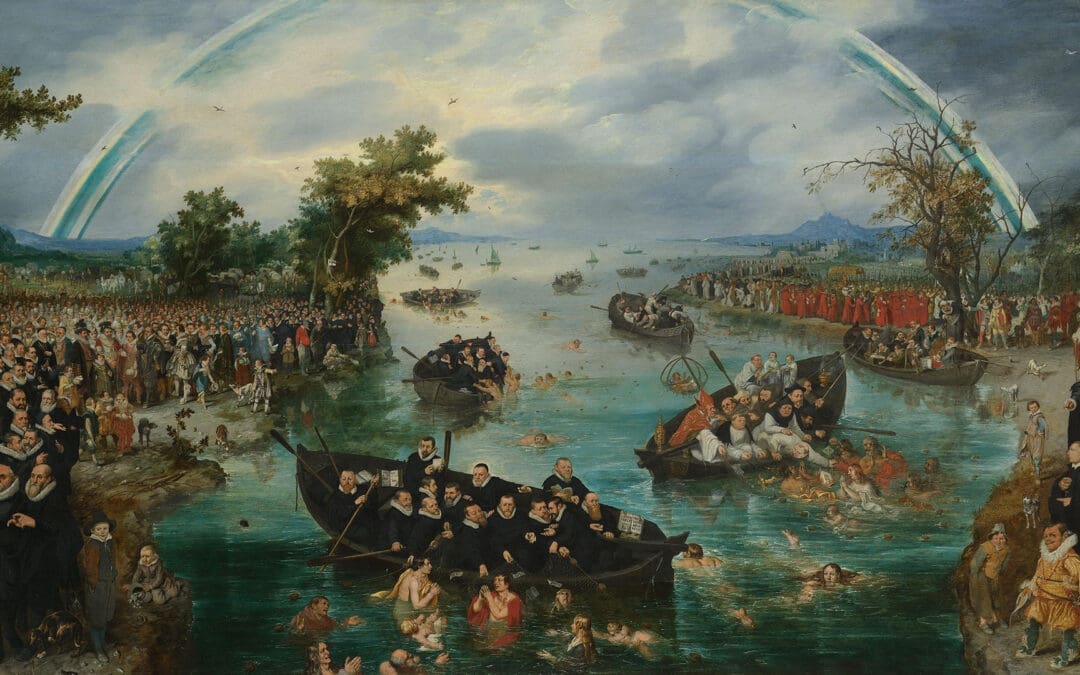W
For there is nothing so social by nature, so unsocial by its corruption, as this race.
—St. Augustine of Hippo
“We are living in a society!” declares an indignant George Costanza in Seinfeld, his whiny voice rising as he speaks. “We’re supposed to act in a civilized way!” George is furious because a woman has stepped in front of him in line for a pay phone, refusing to acknowledge the place for which he has waited ten minutes. On another occasion George has near the same complaint. He asks a man at the airport for the time, and the man rudely tells him to look at a clock on the wall even though he is wearing a watch. “You know, we’re living in a society!” George bellows again. As viewers know, George himself has no moral high ground. He frequently doles out the same “uncivilized” treatment he receives, most egregiously in allowing—causing?—his unwanted fiancée to die from ingesting cheap glue. George is David Hume’s “sensible knave”—well, perhaps not so sensible.
Call this species Homo costanzicus. He has high expectations for others to follow the rules of society, rules that provide benefits like order, security, and opportunity, but he disregards those rules when it suits him. We are all, in a way, Homo costanzicus. We want to live in a world where people focus on driving instead of texting, behave respectfully instead of ghosting or otherwise dehumanizing each other on the dating market, and respond to emails in a timely fashion. Yet we so often fail to exhibit the behaviours we wish to see in others. We all face, in other words, the temptation to free-ride. We experience social norms as external realities, but norms are just regularized patterns of interaction emerging from repeated behaviours of people just like us and the expectations those behaviours generate. In each of our actions, we contribute to the formation and maintenance of what I’ll call the “social commons.”
Call this species Homo costanzicus. He has high expectations for others to follow the rules of society, rules that provide benefits like order, security, and opportunity, but he disregards those rules when it suits him.
There’s no question our social commons have fallen on hard times. Homo costanzicus is more prevalent than ever. The collapse in trust since the 1960s reflects a broader decline in the quality of our social experience, likely reflecting not only a decline in merited trust but also a loss of shared norms and expectations we have of others’ behaviour. The loss of shared norms has paralleled an increase in individual choice and personal freedom, and that’s no accident. As the range of choices in terms of mobility, identity, and lifestyle expands, we diminish what is called “collective efficacy”; that is, it becomes harder for each of us to make binding commitments and hold each other accountable for adherence to shared norms. In turn, the quality of our shared social experience deteriorates, with devastating consequences at the extremes. In Our Kids, Robert Putnam depicts the lives of family members in the drug-ridden and violent Philadelphia neighbourhood of Kensington, where social order has almost entirely broken down. We can also see this playing out in the near-total deterioration and dysfunction on some of San Francisco’s streets and in other major cities.
Take two more examples, both of which raise questions about how to establish and maintain social control and promote order in a free society. First, in a recent New York Times story, Michael Corkery profiles the tragic life and death of Anthony Saldana, who moved to Portland, Oregon, in 2018 and died this year of a fentanyl overdose. The city has experimented with a combination of drug legalization and lax policy on tent dwellings and has seen a high level of homicides and drug overdoses in the last few years. Second is the homicide and gun-violence spike in major American cities from 2019 to 2020 and continuing in 2021, along with recent episodes of civil disorder in New York City and Chicago.
Currents in these debates tend to flow into either advocacy for an anti-police, harm-reduction, social-services model encapsulated in the “defund the police” slogan or a more politically feasible law-and-order alternative. Both, however, leave unaddressed an underlying social weakness that makes informal mechanisms of social control unworkable and leads to overreliance on formal mechanisms. That overreliance in turn further disrupts the relational networks that determine communities’ ability to govern the social commons.
To address the breakdown of our social commons and improve the quality of our cities, then, we need to rediscover the way communities solve commons problems. We need to foster, protect, and participate in relational networks that promote adherence to constructive norms. While participation in these dense relational networks constrains our choices, it empowers us to make binding commitments. As a result, we reap the benefits of a healthier and more vital social commons.
The Social-Commons Framework and Informal Social Control
In her book Governing the Commons, the political scientist Elinor Ostrom studies what she calls “common pool resources,” or CPRs for short. These resource systems—things like pastures, water sources, and fisheries—are shared by many people and are easily overused or drained without careful management. The tragedy of the commons is that each person who appropriates these shared resources has an incentive to overuse them because the cost of overuse is widely distributed, while the benefit is concentrated to the individual user. Prior thinking has held that the only way to govern the commons is either to parcel it out and privatize pieces of it or to rely on a centralized entity to ration and manage the shared resource system. Ostrom counters that many communities manage to solve commons problems through participatory institutions and shared norms.
The challenge I’ve described above, of generating and establishing norms conducive to the long-term benefit of all members of a community, is like the problem of managing CPRs. We can think of the social commons, the web of behavioural expectations and realities constituting the shared experience of life in community, as a shared resource system that needs tending and maintenance. ach of us faces incentives to pursue individual desires for short-term gratification or pecuniary gain because the cost of these behaviours is widely distributed, but the benefit is concentrated. The social commons deteriorates to the extent we each act on these incentives. To what degree do people in a community establish and keep commitments in the realms of family, work, and social relations? What is the character of the interactions between people? How frequently do people resort to violence to settle disputes? To what extent do people pursue healthy and productive enterprises? No social commons is perfect or attains the ideals and aspirations of its members, yet there are real degrees of quality; in some cases, the social experience becomes unspeakably degraded, as in the examples above. The quality of the social commons depends on institutions and norms that generate reliable, beneficial patterns of behaviour.
Just as with CPRs, most communities avoid the tragedy of the social commons. How? One solution is Leviathan. We deputize some community members—police officers, judges, and so on—to serve as order-enforcing agents, distributing sanctions along a spectrum of legal heft, ranging from fines to incarceration. This set of responses constitutes the formal-legal response. The bulk of governance, though, does not depend on formal-legal mechanisms, but on other, more informal ways of sanctioning behaviour that diminishes the quality of the social commons. Informal sanctions range from mild chastisement to more serious forms of stigma or ostracism.
This kind of informal social control is important for crime prevention and establishment of behavioural norms conducive to healthy community. The law is limited in its ability to generate and maintain norms conducive to social welfare. At the same time, law interacts with informal modes of social control to reinforce, weaken, or alter them. As Robert Ellickson writes in Order Without Law, “Lawmakers who are unappreciative of the social conditions that foster informal cooperation are likely to create a world in which there is both more law and less order.”
Observing norms and conflict-resolution practices among ranchers in Shasta County, California, Ellickson sees ongoing relationships in “close-knit” communities, where power and information are evenly and broadly distributed, as crucial to informal social control. “To achieve order without law,” he argues, “people must have continuing relationships, reliable information about past behavior, and effective countervailing power.” Engagement in multifaceted, ongoing relationships facilitates opportunities for expected future interactions on a variety of fronts, fostering commitment and trust. If I need to cooperate with others on an ongoing basis and will be exposed to potential sanctions in the future, I am motivated to maintain positive relationships and contribute to maintaining the social commons. Community members have ample opportunities for “self-help” responses to devious behaviour, ranging from gossip to more confrontational avenues. To be sure, members can appeal to centralized, legal authorities if graduated self-help sanctions do not work, and the informal system of social control relies on a basic system of foundational and often legally enforceable norms.
As members of communities, we govern the social commons primarily by participating in relational networks that expose us to social sanctions, such as reputational costs. Participating in these networks and exposing ourselves to potential sanctions empowers us to establish committed relationships, engage in pursuits that require trust and ongoing partnerships, and hold each other accountable to abide by shared norms. All this works best in the context of caring and mutually supporting relationships. Participation in a marriage or religious community exposes us to potential reputational costs, but it comes with benefits available only in such thick relational networks.
The quality of our individual experiences as members of communities depends not only on our own choices but also on the “social architecture” in which we dwell, or what Robert Sampson calls “collective efficacy,” which is “the process of activating or converting social ties among neighborhood residents in order to achieve collective goals, such as public order or the control of crime.” Collective efficacy varies from community to community, but as collective efficacy increases in a community, problems like poverty and crime decrease.
The problems of free-riding and temptations to antisocial behaviour that social scientists analyze reflect, in terms of Christian teaching, the sinfulness and corruption of all human society. The church, the community Christ has established, counters these tendencies: it provides the basis for ongoing relationships that spur us to love and good works (Hebrews 10:24–25). Ongoing relational networks such as the church and other religious institutions, business and civic associations, and families are precisely the sorts of thick associations many in our society are abandoning.
The Social Commons Versus Liberal Autonomy
To govern the social commons, we must govern our own unruly desires. But we prioritize individual autonomy at the price of collective efficacy, to the detriment of our social commons. English philosopher John Stuart Mill famously defends individual sovereignty in On Liberty. Mill argues that liberty, understood as maximal freedom not only from government constraint but also from social censure and customary authority, should extend to all activities that do not directly harm others. While many philosophers have criticized Mill’s “harm principle”—what’s harm?—his thinking has pervaded our legal theory since the 1950s and profoundly shaped our political discourse. Historical sociologist David Garland argues in The Culture of Control for a “causal link between the coming of late modernity,” with its “liberal individualism” and detachment from obligations to family, church, and other social groups, and “society’s increased susceptibility to crime” in the 1960s and 1970s. The deterioration of these institutions coupled with increased crime preceded and helped precipitate a pronounced, punitive reaction and the rise of mass incarceration.
To govern the social commons, we must govern our own unruly desires.
Nevertheless, contemporary philosophers continue to build on Mill’s argument. Allen Buchanan and Russell Powell, for example, argue that we should find ways to attenuate not only coercive tools of law and order but also subtler forms of social pressure and internalized pangs of conscience that constrain individuals’ liberty, imposing “surplus moral constraints”:
For those who regard invalid moral norms as valid, surplus moral constraints have an internal aspect: they are limitations on an individual’s liberty imposed by conscience. Such internal constraints may be accompanied by external constraints, including not only various sanctions for violating the moral norms in question (such as punishment), but also more subtle but nonetheless powerful forms of social pressure. And insofar as individuals tend to care greatly about what others think of them, and in particular about whether they are regarded as having morally good character and whether their behaviors are perceived as socially acceptable, such external pressures can reinforce the constraints of conscience. Such internal constraints may persist even when external sanctions and pressures have abated.
The social-commons framework pushes against these trends in contemporary liberal theory. Compare the above passage with Ostrom’s language about how norms function to support community institutions:
Norms of behavior reflect valuations that individuals place on actions or strategies in and of themselves, not as they are connected to immediate consequences. When an individual has strongly internalized a norm related to keeping promises, for example, the individual suffers shame and guilt when a personal promise is broken. If the norm is shared with others, the individual is also subject to considerable social censure for taking an action considered to be wrong by others.
While the two might describe the same sociological trends, what one sees as negative the other sees as positive. The social-commons framework suggests the importance of participation in relational networks that expose us to exactly this kind of social pressure and internalization of norms.
Consider the sentiments of one long-time resident of Baltimore’s Cherry Hill neighbourhood identified as Mama Cleo: “It’s always been a community that cared about one another. If you did something and your neighbor saw that it was not something that your parents taught you to do, they would chastise you, and you would go home, you get chastised again. Everybody looked out for each other.” She connects care and concern with chastisement and interference with personal choice.
When the option to exit formative communities exists, people will take it, leaving Homo costanzicus ungoverned—and to the extent he is ungoverned, disempowered.
In contrast, consider George Costanza’s group of friends. Reflecting the thin relational networks available in contemporary society, Jerry, Elaine, and Kramer don’t require him to commit to high standards of behaviour. When the option to exit formative communities exists, people will take it, leaving Homo costanzicus ungoverned—and to the extent he is ungoverned, disempowered.
How would he be disempowered? In his discussion of liberty and social institutions, Edmund Burke provides the answer:
Of all the loose terms in the world, liberty is the most indefinite. It is not solitary, unconnected, individual, selfish liberty, as if every man was to regulate the whole of his conduct by his own will. The liberty I mean is social freedom. It is that state of things in which liberty is secured by the equality of restraint. A constitution of things in which the liberty of no one man, and no body of men, and no number of men, can find means to trespass on the liberty of any person, or any description of persons, in the society. This kind of liberty is, indeed, but another name for justice; ascertained by wise laws, and secured by well-constructed institutions.
Recognizing the importance of shared norms and institutions for promoting adherence to those norms, the social-commons framework accepts the risk of constraints on individual choice. In fact, it requires them. Internalization of shared norms does not diminish personal liberty but is the very key to preserving liberty—and to promoting social order. Participation in networks and adherence to institutional arrangements and norms constraining our choices is , generating the collective efficacy we need to govern the social commons well.
Once again, we can see this process at work in the church. The church welcomes all, but the invitation is to participate in a community that disciplines our sinful desires and antisocial tendencies, redirecting and reordering our loves so we can live in harmony with others and honour God.
The Commons of Intimate Relations
One highly consequential arena of social life we might conceive of as a commons pertains to dating, sex, and marriage. We increasingly manage intimate relations online and without reference to communal norms, but Louise Perry points out in The Case Against the Sexual Revolution that sex is relational. Critiquing contemporary sexual culture—advocated by second-wave feminists as well as men seeking access to relatively costless sex—she points out that sexual liberation actually constrains at least some individuals’ choice sets:
Sex is a social activity: it requires the involvement of other people. If I am, for instance, a young female student looking for a boyfriend at my twenty-first-century university, and I don’t want to have sex before marriage, then I will find my options limited in a way that they wouldn’t have been seventy years ago. When sex before marriage is expected, and when almost all of the other women participating in my particular sexual market are willing to “put out” on a first or second date, then not being willing to do the same becomes a competitive disadvantage.
The individual in the post-sexual-revolution market cannot choose to live in a society with a culture of restraint. Increased individual choice in one direction—toward greater sexual autonomy—closes off choice in another.
Increased choice in the matter of divorce works similarly. In the context of no-fault divorce and decreased social opprobrium for divorce, the choice to enter a marriage universally understood as a binding, lifelong commitment, enforced by law and social sanction, is not available. True, there is the possibility of entering a contract promising lifelong union—a few states have “covenant marriage”—but none of us can unilaterally create a social environment that rewards lifelong marriage and discourages divorce. This may help explain the “marriage paradox”—namely, that while many still respect the institution and hope to be married, young people are increasingly opting out of marriage.
The church welcomes all, but the invitation is to participate in a community that disciplines our sinful desires and antisocial tendencies, redirecting and reordering our loves so we can live in harmony with others and honour God.
Marriage is now just one among many less demanding options for sexual intimacy and gratification. The choice to enter a marriage is not the same choice it would be in a scenario where laws and norms make it hard for partners to back out of a marriage. Committing at the outset to lifelong, exclusive relationships is harder because most social opportunities for cooperation will remain available even if one or both partners back out or violate the marriage. So there’s little external motivation for each partner to preserve the marriage; instead, marriages rely more on heroic effort and discipline. With drastically decreased formal and informal backing for the institution, we essentially say to couples taking difficult vows for lifelong commitment, “Good luck!” Increased choice may seem empowering, but it makes committing to marriage harder.
As our individual choice set expands, our ability to hold people accountable for adherence to a shared set of norms decreases. As sociologist Mark Regnerus writes, “It turns out that a world in which it is possible to satisfy our sexual desires much more immediately carries with it a number of unhappy and unintended consequences.” Perry and others like Christine Emba support cultivating virtues and norms of restraint and courtesy in the commons of intimate relations, but such an approach requires the very internalization of norms that thinkers like Buchanan and Powell construe as “surplus” impositions on autonomy (i.e., bad). Subtle forms of social pressure are a big part of the way such norms are established.
Restoring the Social Commons
Individuals’ actions, including entirely consensual actions, can affect the general social environment in deleterious ways, even if they do not directly harm other particular persons. Ecological theories of morality and culture tend to support more openness to law as a tool to address spillover effects of individual choices that pollute the social environment. As Eric Posner notes in Law and Social Norms, law may aid community members with sanctioning members for deviant behaviour, serving a coordinating function. All this is an appropriate concern for law, yet the social-commons framework suggests a bit more nuance. An overreliance on law, as I’ve suggested, can have destabilizing and debilitating effects on communities’ capacity to self-govern and effectively establish norms.
This is true with regard to the criminal justice system. To return to the debate on crime and law and order, US policy in this area has faced a dilemma since the 1960s. An apparent decline in communities’ effectiveness at sanctioning behaviour precipitated an increased reliance on formal-legal mechanisms of social control, including incarceration. This may in turn have further undermined families’ and communities’ ability to establish institutions of self-governance and prosocial norms. If the social-commons framework suggests a critique of liberal autonomy and “de-moralization,” it also suggests a more nuanced framework for social policy than a simplistic, Leviathan-focused response to problems of crime. That response is focused on restoring collective efficacy through participation in communities and relational networks that empower us to commit to constructive and mutually beneficial behaviour.
The social-commons framework suggests the importance of building and maintaining institutions to govern the shared social environment we inhabit and help generate. Seth D. Kaplan’s work elaborates on the problem of decaying social institutions and points the way to solutions, noting especially the work of Communio and other organizations that work with churches to promote place-based restoration of relational networks and social institutions, as opposed to national-level, cause-based approaches.
Informal governance of the social commons depends in large part precisely on internalized constraints on freedom of action, reinforced through social pressure, that advocates of greater individual autonomy seek to diminish. We as members of communities can govern ourselves and our shared social environment by participation in relational networks offering supportive and mutually beneficial interaction, empowering us to commit ourselves to constructive habits. The social-commons framework lays the groundwork for a defence of robust communities with definite membership and shared moral commitments, but such communities must offer enough benefits relative to thinner and less demanding options, abundantly available in our society, to be attractive.
We’re unsocial in our fallenness, as Augustine says. Yet in his providence God gives us communities that constrain our unsociality, empowering us to be social again, however imperfectly. It’s through renewed formation of and participation in thick relational networks, especially the church, that we can be newly empowered to govern ourselves and restore our social commons.







